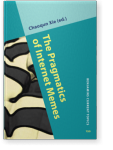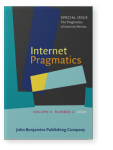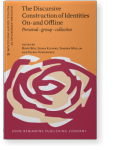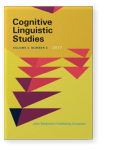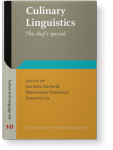Monika Kirner-Ludwig
List of John Benjamins publications for which Monika Kirner-Ludwig plays a role.
2022 Internet memes as multilayered re‑contextualization vehicles in lay-political online discourse The Pragmatics of Internet Memes, Xie, Chaoqun (ed.), pp. 145–181 | Chapter
It is well established that the internet meme has come to represent a highly creative discursive device used to “facilitate the […] communication of one’s own political beliefs, attitudes and orientations” (Ross and Rivers 2017: 1). Although internet memes and political internet memes in… read more
2020 Internet memes as multilayered re-contextualization vehicles in lay-political online discourse The Pragmatics of Internet Memes, Xie, Chaoqun (ed.), pp. 283–320 | Article
It is well established that the internet meme has come to represent a highly creative discursive device used to “facilitate the […] communication of one’s own political beliefs, attitudes and orientations” (Ross and Rivers 2017: 1). Although internet memes and political internet memes in… read more
2018 Great pretenders: The phenomenon of impersonating (pseudo-)historical personae in medieval blogs, or: Blogging for someone else’s fame? The Discursive Construction of Identities On- and Offline: Personal - group - collective, Bös, Birte, Sonja Kleinke, Sandra Mollin and Nuria Hernández (eds.), pp. 15–56 | Chapter
This paper deals with the contradictory phenomenon of fake profiles within the blogosphere, i.e. blogger profiles that are overtly fictional in specific. We encounter these in the medieval weblog Geoffrey Chaucer Hath a Blog, launched in 2006 by Brantley Bryant, then Associate Professor of… read more
2017 A crosslinguistic study into culturally motivated resemblances and variations in transferred epithet metaphors in Chinese and English Cognitive Linguistic Studies 4:2, pp. 216–248 | Article
It has been postulated that a cognitive approach may lend itself well to the study of transferred epithets, as this traditional rhetoric device possesses all the essences of metaphor from the perspective of Cognitive Linguistics. Transferred epithet metaphors are gradually cognitively cultivated… read more
2013 Food for thought – or, what’s (in) a recipe? A diachronic analysis of cooking instructions Culinary Linguistics: The chef's special, Gerhardt, Cornelia, Maximiliane Frobenius and Susanne Ley (eds.), pp. 119–138 | Article
This paper focuses on the text type of cooking instructions, or recipes, from a chiefly diachronic point of view. After giving a brief overview on both the etymological origins and semantic developments of the notion recipe, we will compare two recipes with regard to formal and functional… read more
